What Medications Should Not Be Mixed with CBD or Hemp – Guide 2024
Cannabidiol (CBD) or hemp is growing in popularity due to its promising effects to relieve anxiety, dermatological disorders, chronic pains, inflammatory diseases, cardiovascular diseases, muscular and joint pains, sclerosis, post-surgical pains, and many more.
It is comparatively better as it is believed to not give the ‘high’ and is also non-intoxicating like THC (tetrahydrocannabinol).
Although CBD has so many health benefits, it can still not be combined with a few other drugs as this can cause adverse effects. It can also be due to impure or poor quality of CBD. If you are looking for pure and clean extracted CBD, you can find it on http://kchempco.com.
Continue to read what are all the medications that should not be mixed with CBD or hemp.
Drug Metabolism
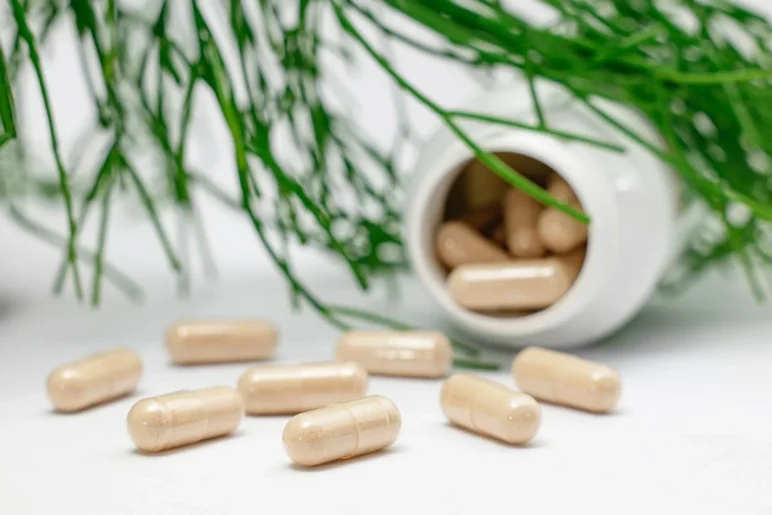
Our body breaks down any drugs into their constituent active compounds to make them soluble in the blood and used by the body. This process mostly occurs in the liver through the liver enzymes.
The enzymes of the liver convert these broken active compounds into metabolites that carry out various functions in the body and are then flushed out as urine.
When CBD is orally consumed, it passes through the gut and then reaches the liver through the bloodstream. The liver then breaks the CBD into its metabolites after which it can flow into the bloodstream again.
Apart from breaking down the components into metabolites, the liver also helps excrete foreign compounds and toxic substances thereby detoxing the system. This activity is carried out by the Cytochrome P450 (CYP450) enzyme of the liver.
CBD can directly interact with the CYB450 enzyme as it binds to the active site of the enzyme where enzyme activity occurs forming a substrate. Therefore, it competes with other substances (maybe from drugs as well) and thus prevents their breakdown. This hence causes a delay in the time of drug delivery. The inhibitory activity depends on the amount and type of CBD taken.
CBD Interactions with Drugs
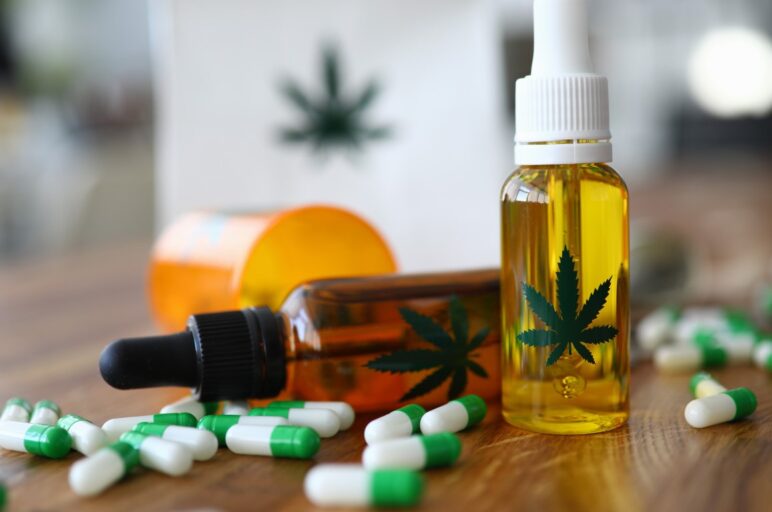
Liver enzymes are responsible to break down the drug and CBD can interfere and compete with the enzymes. This might interrupt adequate amounts of drug to reach at the right time and therefore slow the process or even cause side effects. It is also difficult to predict these drug interactions which might lead to new problems.
Additionally, CBD might induce the production of other enzymes and can cause a faster breakdown of the drug. This will again lead to a loss of effectiveness of the drug.
All these changes must be monitored by changing the dose of the drug as well as CBD doses.
Some of the well-known drugs that should not be taken along with CBD are:
• HIV Antivirals
• Antiarrhythmics
• Antibiotics
• Anticonvulsants / Anti-Seizure Medications
• Steroids and Corticosteroids
• HMG CoA Reductase Inhibitors (Statins)
• Immune Modulators
• Non-Steroidal Anti-Inflammatory Drugs
• Sulfonylureas
• Beta-Blockers
• Benzodiazepines
• Heart Medications
Many other drugs can cause side effects when consumed with CBD. Some of them are known and some of them are not.
Side effects of CBD
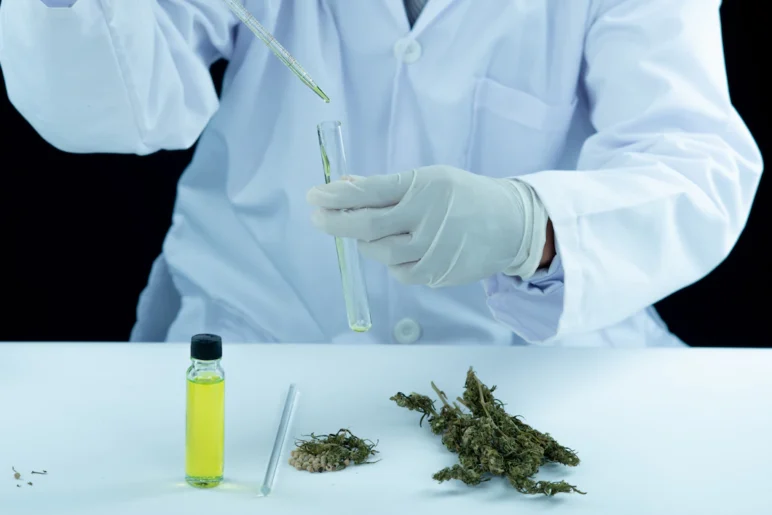
Although it is effectively tolerated, CBD can cause side effects like dryness of the mouth, lightheadedness, diarrhea, drowsiness, low blood pressure, reduced appetite, and fatigue.
It should also be kept in mind that unreliable sources and unclear concentrations of CBD might also vary the doses of CBD intake. Few recent studies have shown that some of the products contained fewer concentrations of CBD and also had TCH (intoxicating factor) in them.
Effects of CBD based on the form of intake
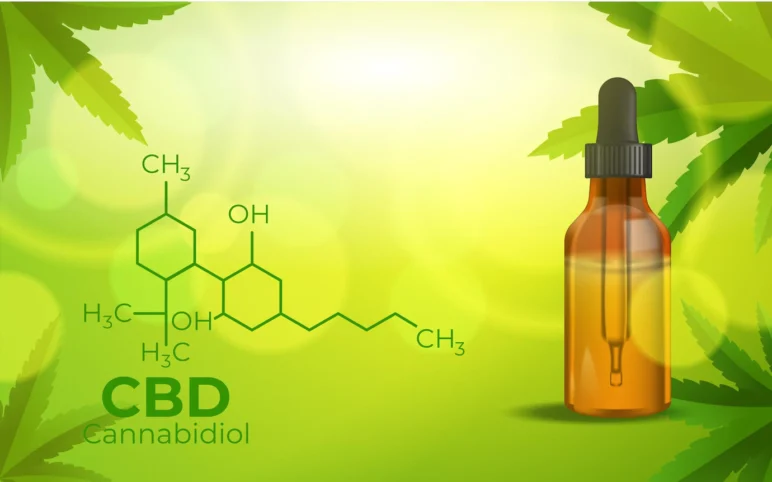
The severity of CBD activity also depends on how it is taken.
CBD if inhaled reaches the bloodstream much faster than any other form of intake. It reaches the bloodstream in about just 30 minutes with high concentration.
Edibles like tablets, gummies, etc take a longer time to reach the bloodstream although they might later interact with other medications.
Topical formulations used externally in the forms of creams, oils, or lotions may not absorb into the bloodstream and cause effects on other medications. But it is not sure how much would get into the blood on repeated application over time.
Some special conditions to be taken care of
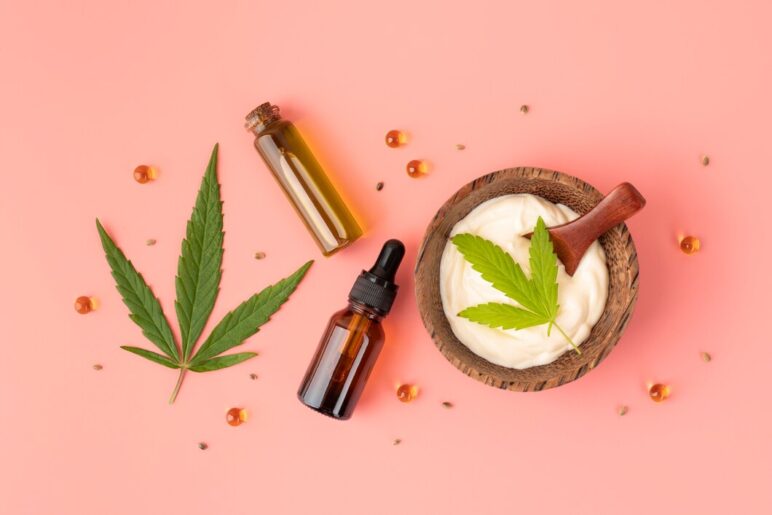
• It is advised to avoid CBD for pregnant and breastfeeding mothers as the CBD product might contain contaminated ingredients that might affect the fetus or infant.
• Children below the age of 1 year are advised not to take CBD as it is still unknown of the effects. • Children above 1 year can consume orally up to 25 mg/kg daily with a doctor’s prescription.
• Patients with Parkinson’s disease are asked not to take CBD as some high dose of CBD causes difficulty in the movement of muscles.
• Patients with liver diseases are asked to avoid or take low doses of CBD as this can alter the liver enzyme responsible for breaking down compounds.
CBD with Epidiolex for Epilepsy
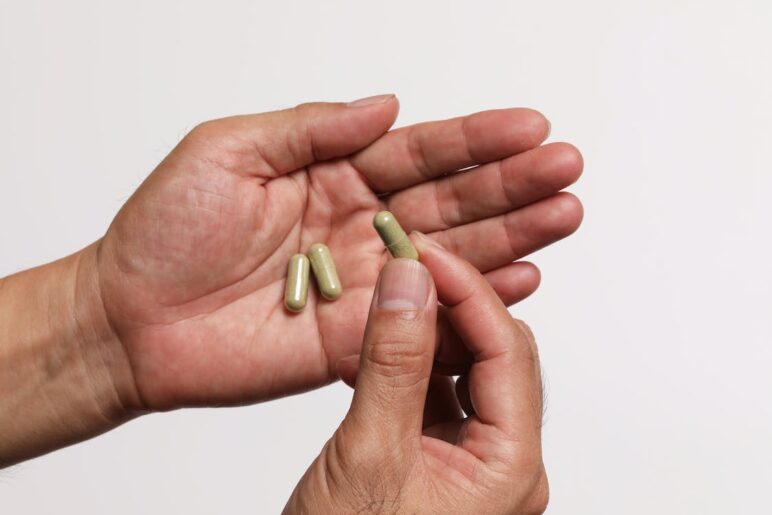
Epilepsy is a condition where seizures are caused due to disturbed nerve cell activities in the brain. It can either be a genetic disorder or due to brain injuries like trauma or stroke.
Epidiolex is an FDA (Food and Drug Administration) approved prescription cannabidiol (CBD) that is used to treat seizures associated with epilepsy. CBD has shown very good beneficial effects in treating these seizures. But not all patients are prescribed CBD with Epidiolex.
People with uncontrolled seizures have shown great effects to reduce seizures while using medical CBD. It is also best suited for people with drug-resistant epilepsy.
But sometimes it comes at the cost of having unbalanced or abnormal levels of liver enzymes. Patients who continuously intake CBD for Epilepsy are more likely to develop abnormal liver enzymes along with sleepiness if they are consuming it with valproic acid to control seizures.
Conclusion
CBD or Hemp is by far believed to be well-tolerated by animals and humans rarely showing some side effects.
It provides a versatile range of therapeutic benefits and thus interacts with many other medications as well. This must be taken care of to prevent any sort of adverse effects.
Along with the type of disease, the quality, type, quantity, and physiological properties of CBD also play an important role in causing adverse effects.
In case your medication involves the use of CBD or hemp, make sure that you mention to the doctor about the medication you already are taking. This will help them check if any of the drugs can cause adverse effects with CBD or hemp involved.
